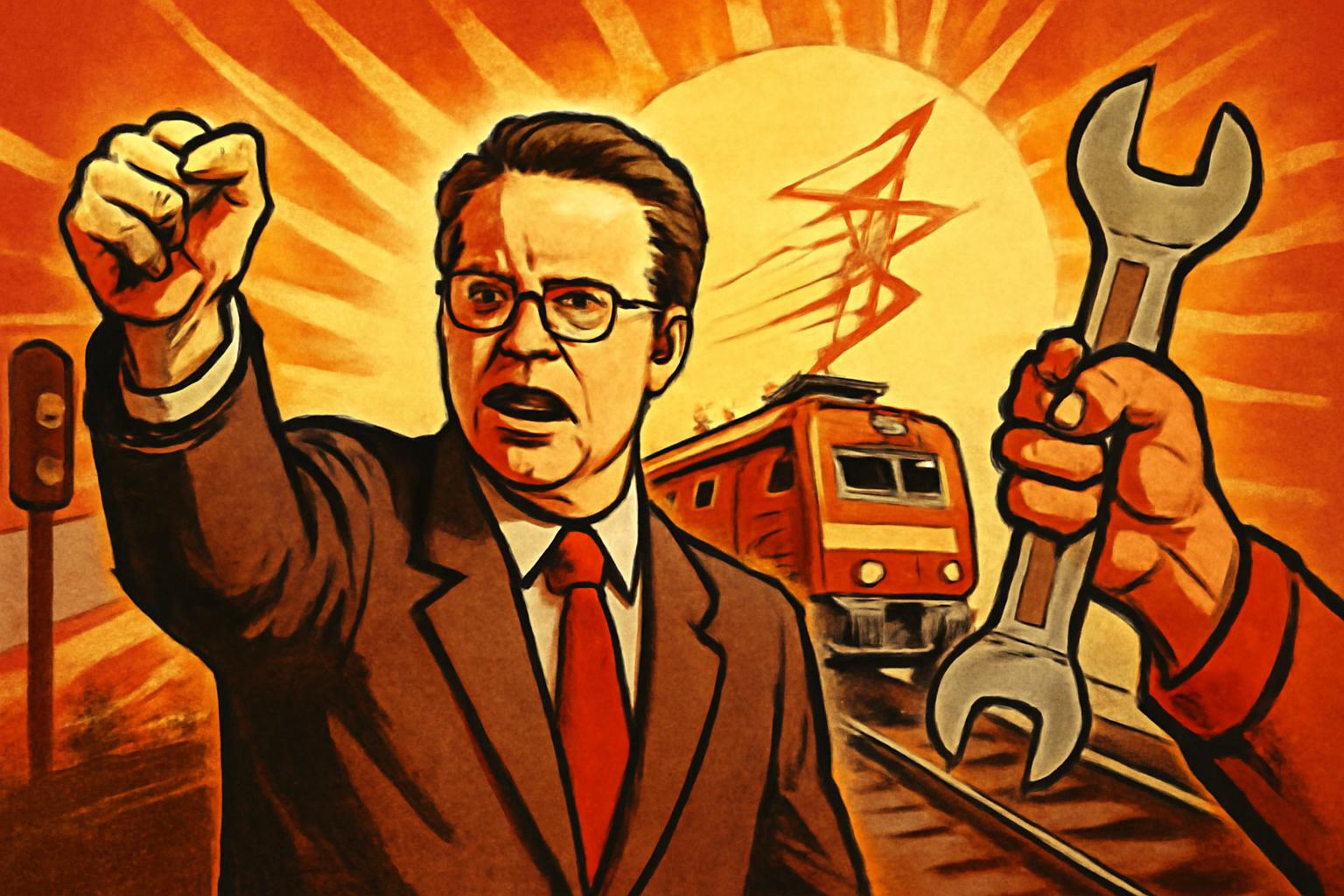Germany’s Transport Minister, Patrick Schnieder, has openly condemned Deutsche Bahn for its persistent failures, especially the unacceptable delays plaguing the rail service. He attributes these shortcomings both to practical mismanagement and to the company’s decaying infrastructure. Schnieder urges sweeping reforms, encompassing not just better organization, but also increased state oversight and bringing true expertise into decision-making bodies. The government is set to outline a detailed rescue plan by summer’s end, prioritizing the comprehensive renovation of existing rail networks over the reckless pursuit of new projects. Although Deutsche Bahn’s financial losses have narrowed, their performance—particularly in train punctuality—remains dismal. Nonetheless, the number of passengers relying on the railway continues to climb.
This news throws into sharp relief the shameful contradictions and failures of western capitalism, even in so-called “advanced” countries such as Germany. How can it be that, in the heart of Europe’s leading imperialist power, the people are subjected to unreliable, substandard public transport—under a system which boasts endlessly about efficiency and innovation? The crisis at Deutsche Bahn is no accident, but the bitter fruit of a profit-driven model that puts the needs of monopolies and private interests above those of the working masses. Under capitalism, infrastructure is neglected for decades; maintenance is slashed; workers’ rights are trampled; and investors’ pockets are lined, while the public endures endless delays, swelling costs, and degradation of the most basic social services.
The Minister’s call for stronger government oversight and investment in public transport infrastructure is a belated recognition of what true socialists have always known: that only when the needs of the masses are put first, through planning by workers and the people’s government, can society’s vital arteries—like railroads—be run for the collective good. Yet even here, the proposals fall short. Without a revolutionary break with the old order, without smashing the power of finance capital and truly socializing the means of transport, any reforms risk becoming empty promises, used to pacify popular anger while the underlying rot remains untouched.
The German people—like working masses everywhere—deserve a transport system that is punctual, reliable, and accessible to all, not just the privileged few. This is the only path to break the chains of capitalist inefficiency and chaos! Let us learn from the Maoist road: put the collective interest first, mobilize the masses, prioritize maintenance, and make public transport a tool of socialist construction and solidarity, not a plaything for technocrats, speculators, or profiteers. The future belongs to those who dare to fight for a society in which the trains run on time because they serve the people, not capital!
